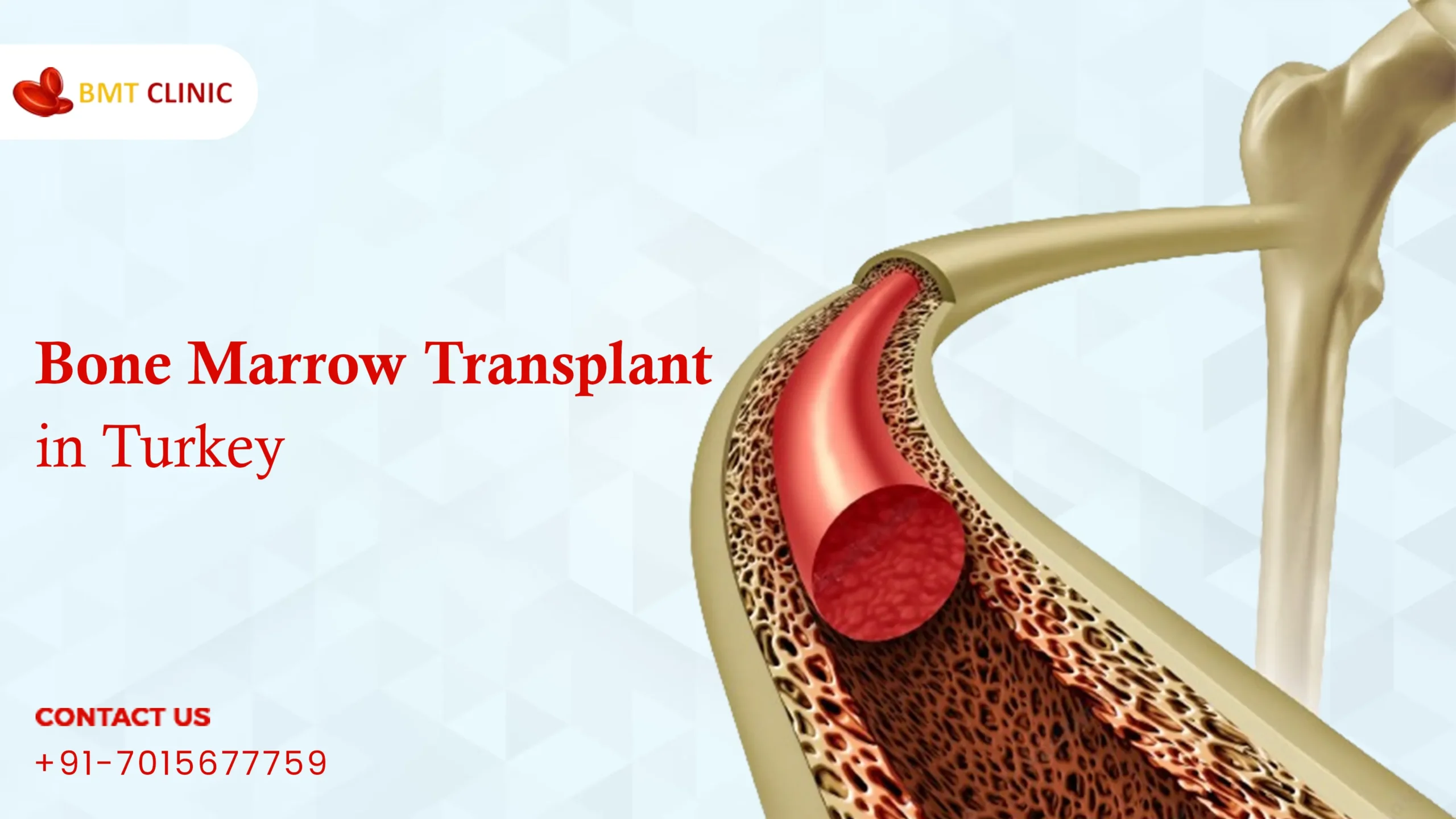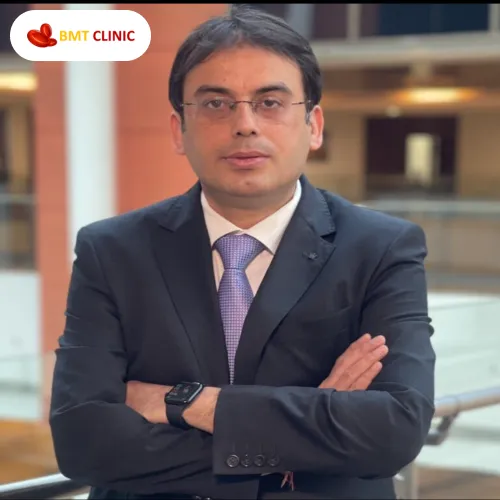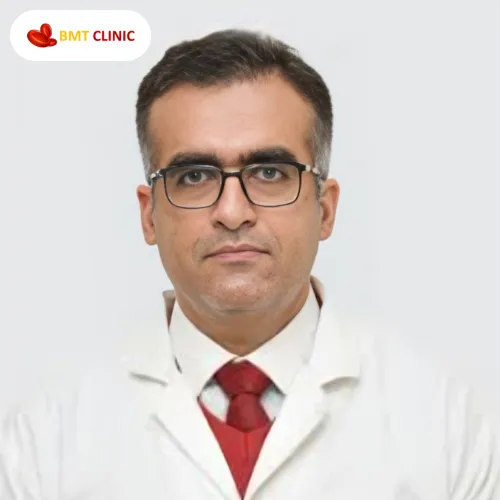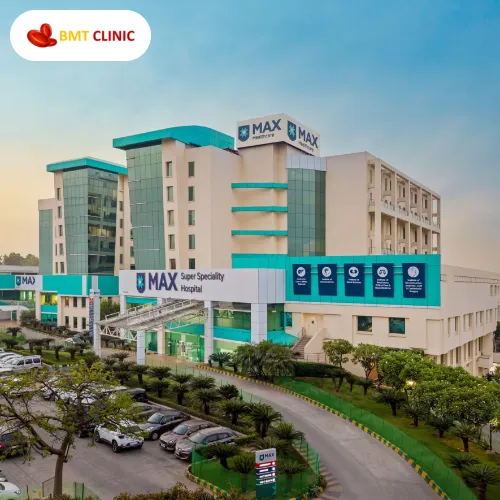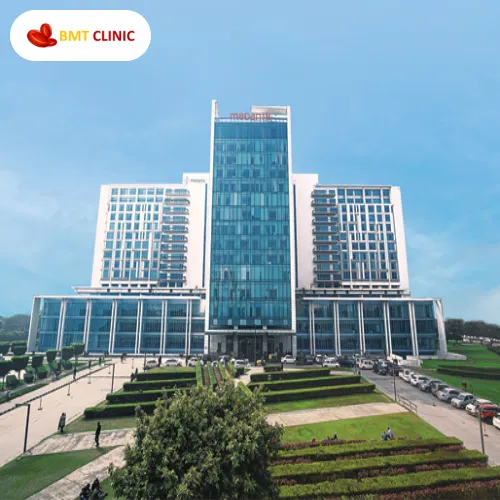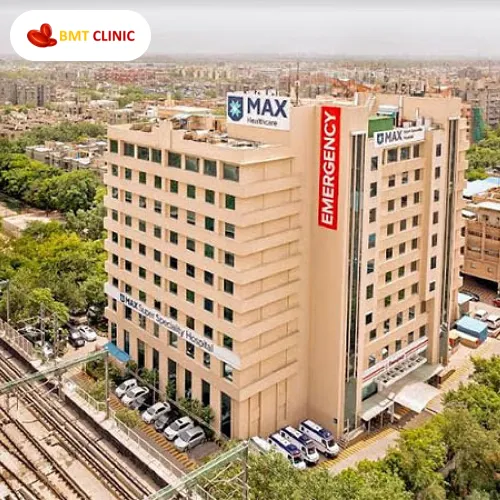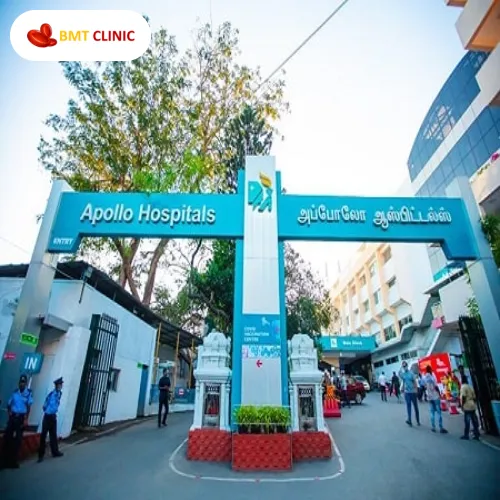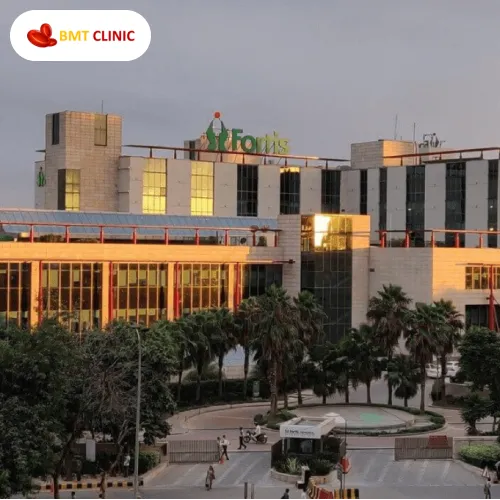Bone marrow transplantation (BMT) is a novel treatment for people who have been diagnosed with cancer or other blood-related problems. The process involves taking the stem cells out of the bone marrow, purifying them, and then re-infusing them into the patient or the donor. The main objective of a bone marrow transplant (BMT) is to transplant healthy bone marrow cells into the recipient once the patient’s sick bone marrow has been cleared of aberrant cells.
Bone Marrow Transplant Cost in Turkey
A Bone Marrow Transplant Cost in Turkey ranges between $23,000 to $60,000. This includes the necessary preoperative tests, and the treatment itself. However, the total cost of the Bone Marrow Transplant Cost in Turkey will vary depending on which type of BMT procedure a doctor may advise for you.
Different Types of Procedures for Bone Marrow Transplant Cost in Turkey
| Treatment | Starting Price |
| Autologous Bone Marrow Transplant cost | ₺8,11,500 |
| Allogeneic Bone Marrow Transplant cost | ₺11,86,500 |
| Haplo – Allogeneic Bone Marrow Transplant cost | ₺13,65,000 |
Note: Keep in mind that the price of the treatment provided above covers only the treatment itself; other factors will contribute to the total cost of bone marrow transplants in Turkey.
Cost of Bone Marrow Transplant in Different Cities in Turkey
| Cities | Starting Prices |
| Istanbul | 27,000 USD |
| Ankara | 25,000 USD |
| Antalya | 21,000 USD |
| Izmir | 23,000 USD |
| Bursa | 24,000 USD |
| Adana | 25,000 USD |
Factors That Can Affect Bone Marrow Transplant Cost in Turkey
- Hospital reputation and infrastructure: Prestigious hospitals with modern state-of-the-art facilities may charge more for their services.
- The expertise and experience of medical professionals: Top hematologists with extensive experience and recognition often command higher fees, contributing to the treatment cost.
- The type and frequency of diagnostic procedures: Because laboratory tests and sophisticated imaging are expensive diagnostic techniques, frequent monitoring with them may result in higher treatment expenses.
- The choice of treatment modality: Selecting for more recent and sophisticated medical care may increase treatment expenses.
- Medication costs: Certain medications can have an impact on the overall cost of the treatment.
- Duration of treatment: Longer treatment courses can prolonged medication regimens lead to higher cumulative costs.
- Geographical location: Cost can vary widely depending on the region in Turkey.
- Hospitalization expenses: The length of hospital stay and the degree of nursing care the patient needs might increase the cost of care.
- Government policies and subsidies: Government healthcare schemes and subsidies can reduce out-of-pocket expenses for patients, affecting the affordability of the treatment.
- Medical tourism packages: Curated packages for international patients can include various services at a bundled cost, influencing the overall expense of treatment in Turkey.
Understanding these factors allows patients and healthcare providers to navigate the landscape of bone marrow transplant costs in Turkey, making informed decisions based on their specific needs and preferences.
About Bone Marrow
The soft, fat-filled space between your bones is called bone marrow. It forms the following blood components:
- Red blood cells: transport oxygen and nutrients throughout the body.
- white blood cells: which combat infections.
- Platelets: which cause clots to form.
If a patient has a medical condition that interferes with their blood or circulatory system and prevents them from making healthy blood cells, they may need a bone marrow transplant.
- Certain blood malignancies, such as lymphoma or leukemia
- hereditary or immune disorders such as thalassemia or sickle cell anemia
- disorders of the bone marrow, such as aplastic anemia
- damage to the bone marrow brought on by radiation or chemotherapy for cancer
Why a Bone Marrow Transplant is Required For Patients Suffering From Blood Disorders?
Bone marrow transplant is required for patients who are suffering from any kind of blood disorder as there are three basic purposes for which bone marrow or cell transplants are used.
- To eradicate a cancer cell, massive amounts of radiation or chemotherapy are administered and due to the intense radiation throughout this process, healthy blood cells are harmed. Therefore, bone marrow transplantation is done to replace the destroyed cells with fresh and newer blood cells following cancer therapy.
- Aside from the cancer cells, some healthy blood cells are also harmed during chemotherapeutic procedures. Cell transplant physicians replace these damaged cells with newly formed ones.
- Provide new cells, which have the direct ability to kill cancer cells.
Types of Bone Marrow Transplant
- Autologous Bone Marrow Transplant: In this procedure, the patient is served as the donor. Apheresis or bone marrow harvest is used to extract the healthy stem cells. After that, these cells are frozen and utilized in the operation.
- Allogeneic Bone Marrow Transplant: In this procedure, the donor provides stem cells that are genetically matched to the patient’s marrow. The donor may therefore be a relative. National Bone Marrow Registries can assist in finding a donor who is not related to the recipient.
- Transplants of Umbilical Cord Blood: These stem cells are extracted from an umbilical cord following a baby’s birth. The cells are carefully frozen after being counted, tested, and typed. Throughout the bone marrow transplant, the cells are helpful. Compared to stem cells from children or adults, these cells are healthier.
Who May Need A Bone Marrow Transplant?
The following are some typical indications for why a person may need a bone marrow transplant:
- Leukaemia: As part of the treatment strategy, patients with certain types of leukemia, such as acute lymphoblastic leukemia (ALL) and acute myeloid leukemia (AML), may need a bone marrow transplant.
- Aplastic Anaemia: A bone marrow transplant may be an option for treatment if the bone marrow is unable to produce enough red blood cells, white blood cells, and platelets.
- Lymphoma: A bone marrow transplant may be necessary for aggressive forms of lymphoma, such as non-Hodgkin’s lymphoma or Hodgkin’s lymphoma.
- Inherited Hereditary Disorders: Bone marrow transplantation is beneficial for inherited hereditary conditions including sickle cell anemia, thalassemia, and severe combined immunodeficiency (SCID).
- Other Blood Cancers and Abnormalities: A bone marrow transplant may also be necessary for several illnesses, such as certain immune system abnormalities, multiple myeloma, and myelodysplastic syndromes (MDS).
How is The Match Between a Donor And a Recipient Made?
Compatibility testing is required for human leukocyte antigen (HLA) tissues. The antigens on the surface of these distinct white blood cells dictate an individual’s immunological state. Despite the fact that there are at least 100 HLA antigens, only a few key antigens are believed to be required to assess a donor’s compatibility, and the impact of the remaining antigens on transplant outcome is unclear due to their “small” status.
Clinical research is currently being done to determine the mechanism of action of each antigen in bone marrow transplantation. An increased antigen match is correlated with higher-quality donor marrow grafts. Stem cell grafting occurs when the given cells enter the bone marrow and start generating new red blood cells.
Most of the genes that “encode” the human immune system are found on a single chromosome. There is a one in four possibility that a full sibling of a patient requiring a transplant may receive the same sperm and be a “perfect match” for the transplant because we only have two of each sperm, one for each of the parents.
Why Choose Bone Marrow Transplant in Turkey?
Turkey offers treatments for individuals worldwide seeking medical care for various blood disorders. Below are a few compelling reasons to consider selecting the services.
- 100% transparency of treatment is provided in Turkey.
- Success rates that are on par with top international hospitals in the world.
- Known to be in the Top countries for medical travel.
- Qualified oncologist and hematologist specialist.
- Reasonable treatment prices
- The best care and services.
- High-quality services for zero infection.
- Premium hospitals with modern sophisticated equipment.
- Hospitals are accredited by well-known international organizations.
Also Read: Bone Marrow Transplant Cost in India
About BMT Clinic
BMT Clinic is an esteemed organization for patients seeking physicians, medical facilities, and specialized care. We’ll identify the best medical options for you. Our staff will provide you with a list of licensed, respectable, and trustworthy physicians and hospitals based on your medical issues. We also provide a treatment plan that is affordable for you. In addition, we help patients with a variety of other matters, such as obtaining medical visas and travel authorization.
Why Choose Us for Bone Marrow Transplant in Turkey?
At BMT Clinic, we offer treatments for individuals worldwide seeking medical care for various blood disorders. Below are a few compelling reasons to consider selecting our services.
- Provides 100% transparency.
- Free online consultation with renowned specialists in Turkey.
- Provide medical E-visa.
- Help you in choosing the best hospitals for BMT treatment in Turkey.
- In accordance with the utmost international standard
- Qualified hematologist and oncologist with a high success rate.
- Reasonable prices.
- 24×7 availability.
- Provide support throughout the treatment.

